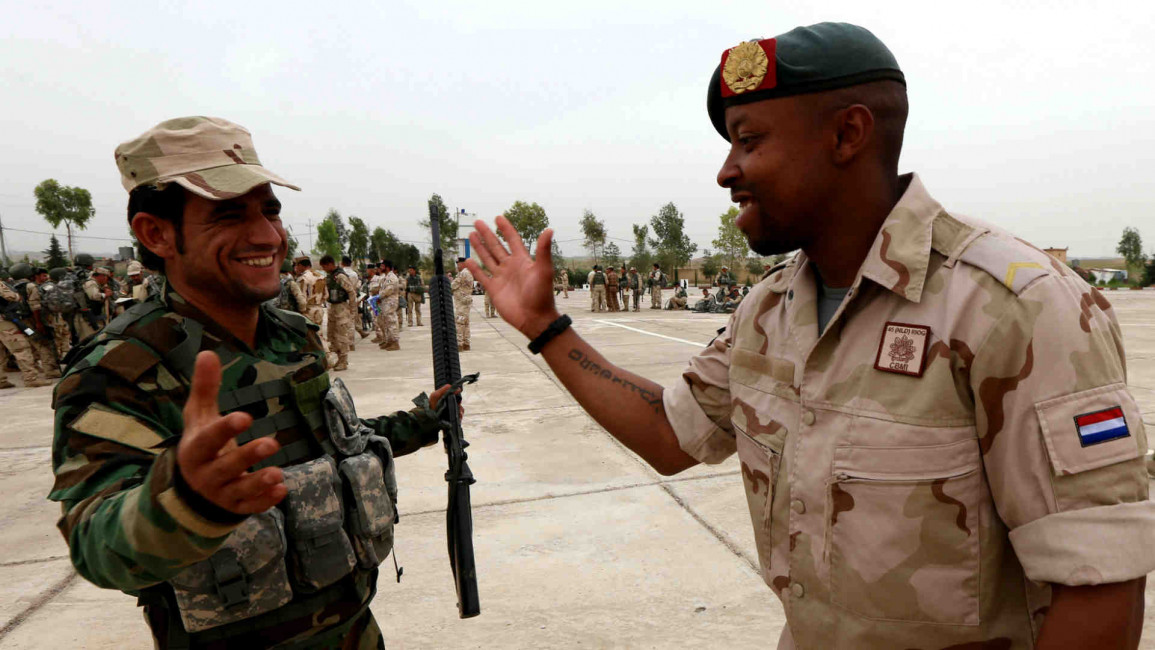Netherlands joins Germany in suspending Iraq military training mission
State broadcaster NOS said on Wednesday the 50-person mission is halted "until further orders". It quoted a defense ministry spokesman as saying he couldn't elaborate on the threats.
The Dutch forces are primarily training Kurdish forces fighting the Islamic State group in the region.
The announcement came soon after the German government suspended military training for Iraqi soldiers.
German Defense Ministry spokesman Jens Flosdorff says that Germany is "orienting itself toward our partner countries, which have taken this step."
But he stressed that "there is no concrete threat" and the decision is down to the security situation in general being viewed as more tense.
Germany currently has about 160 German soldiers in Iraq as part of the fight against the Islamic State group, about 60 of them at a base north of Baghdad where Iraqi forces are being trained.
Chancellor Angela Merkel's spokeswoman Ulrike Demmer said on Wednesday that, "obviously, we are watching the increasing tensions in the region with big concern and welcome any measure that is aimed at a peaceful solution."
Demmer added that the government condemns all acts that escalate the situation in the region further.
Foreign Ministry spokeswoman Maria Adebahr said despite the tension, the German government has not reduced its staff at the embassies in Iraq and Iran.
Germany's announcement came shortly after the US State Department on Wednesday ordered all non-essential government staff to leave Iraq right away amid escalating tensions with Iran.
Washington last week said it had detected new and urgent threats from Iran and its proxy forces in the region targeting Americans and American interests.
Tensions in the region
The decisions come amid days of rising tensions in the Gulf, which has witnessed at least two attacks.
On Tuesday, drone attacks claimed by Yemen's Houthi rebels shut down one of Saudi Arabia's major oil pipelines, further ratcheting up Gulf tensions after the sabotage of the ships.
Houthi rebel spokesman Mohammed Abdulsalam wrote on Twitter that the attacks were "a response to the aggressors continuing to commit genocide" against the Yemeni people.
Saudi Arabia and the United Arab Emirates intervened in the Yemen war to bolster the internationally recognised government's efforts against the Houthis in March 2015.
The reported pipeline attacks came after the UAE said four ships were damaged in "sabotage attacks" off the emirate of Fujairah, close to the Hormuz, on Sunday.
While Washington and its Gulf allies stopped short of blaming Riyadh's regional arch-rival Tehran for the sabotage, US President Donald Trump warned Iran against doing anything to harm US interests.
Follow us on Twitter: @The_NewArab



